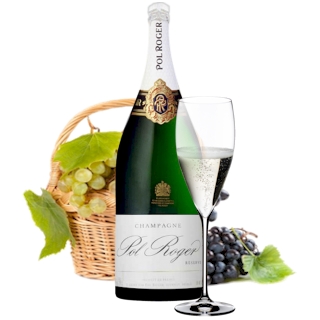Right around the time that Frank Potts was planting his nascent Bleasdale Vineyards during the 1850s, an eccentric Prussian named Herman Daenke established a homestead along the banks of Bremer River, which he called Metala. The site was planted to viticulture by Arthur Formby in 1891 and became one of Langhorne Creek's most productive vineyards, it continues to supply fruit for a number of prestigious national brands. Legendary winemaker Brian Dolan took the radical step of bottling Metala under its own label in 1959 and won the inaugural Jimmy Watson Trophy in 1962. Two generations later, the brothers Tom and Guy Adams took a similar leap of faith and branded their Metala fruit as Brothers In Arms. The..
The goodly farms of brothers in arms»
There were two scrub covered parcels of land, just outside Pokolbin village along McDonalds Road, that local council had long set aside for use as cricket ground and cemetery. Both were ultimately auctioned off to the highest bidders and sown to vine. A third undeveloped site became the subject of a long running feud among the new and old neighbours. Dodgy invoices between the rivals were exchanged and the division of firewood became a further cause of contention. A truce was eventually called by the two protagonists, Brokenwood and Hungerford Hill, for the sake of healthy viticulture. The nascent blocks achieved international renown as the eminent Cricket Pitch and the Langtons Listed Graveyard..
Sociable soils make for healthy vine»
Beechworth attracts the most artisanal winemakers, the region's rich mineral soils and parched, undulating terrains, breed wines of vigorous flavour, crystalline textures and boney savoury tannins. The first parcel of Crown Land in the region was acquired by Isaac Phillips in 1857, he christened his estate Golden Ball and built a hotel named Honeymooners Inn, servicing miners on their way up the steep trails to the Beechworth goldfields. The old pub remains but the surrounding land has been turned over to viticulture, planted to vine in the nineteen naughties, it produces a quality of wine that's reserved for the nation's most exclusive winelists. Served by savvy sommeliers and savoured by the most..
Small batches of beechworth's best»
W. J. Seabrook & Son have been a part of the Australian wine industry since 1878. Many an ancient storefront, right across the country, are still emblazoned with the family label. Fifth generation vigneron Hamish Seabrook drew inspiration from time well spent at other illustrious estates, establishing his own personal repute as a distinguished winemaker during tours of duty at Bests Great Western, Brown Brothers Milawa and the Barossa's exalted Dorrien. A key to the long lived excellence of the Seabrook trademark has been a canny selection of exceptional vineyards fruit. Hamish hand chooses his harvests from the finest vineyards in the land, just as his forefathers did. He is a proud recipient of the..
Salutations to seabrook»


























